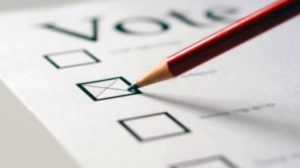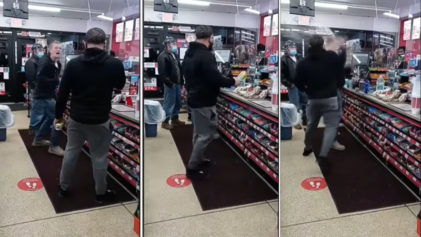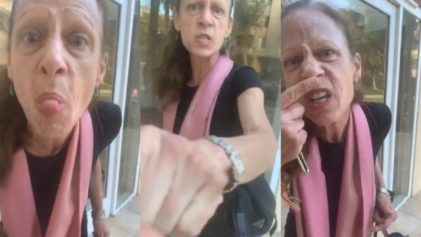
Now, imagine that vote did not count. Unfortunately, you may not have to since, if you’re African-American or Latino, there’s a real chance it did not.
“We are really heading back to Jim Crow and that is not a joke,” says investigative reporter Greg Palast, a best-selling author and producer of the documentary film,”The Best Democracy Money Can Buy.” “They are returning to those tactics of making voting very difficult for low-income individuals and people of color.”
In the 2016 presidential elections, while African-American and Latino voters in states across the country flocked to the polls to cast ballots, a significant number found their names scrubbed from the rolls and their registrations in question. Much of this can be attributed to a little-known process known as the Interstate Voter Registration Crosscheck Program, or “Crosscheck” for short, that matches names and compiles lists of citizens allegedly registered in multiple states as potential threats for illegal voting. Since the stealth program — initiated by Kansas Secretary of State and top Trump adviser Kris Kobach and backed via front organizations by the billionaire Koch brothers — does not publicly disclose data, it’s very possible you may be among the 7.26 million potential illegal voters in 28 states included on the Crosscheck list and not know it — especially if you are African-American. An extensive pre-election investigation by Palast for Rolling Stone magazine based on a secured portion of the list including one million targeted voters found Crosscheck disproportionately identified the “solid Democratic constituencies” of African-Americans, Latinos, Asian-Americans and young voters for massive potential registration purges. One consequence of such targeting is the disparate allocation of provisional ballots, ballots commonly disqualified in states where partisan elected officials have the power to determine.
Even so, Crosscheck is touted by Republican officials as a powerful deterrent to what they eagerly characterize as “widespread voter fraud,” particularly in urban areas. Though unsubstantiated, these claims are currently morphing into a potential government investigation by the Trump administration. Consistently, sensational claims of vote rigging and electoral fraud were lobbed about well before the election by Republican Party leaders and then-candidate Trump, who famously quipped that millions of people were “voting many, many times.” Combined with troubling inconsistencies in exit polling data, a court-halted recount effort by Jill Stein’s Green Party and post-election allegations of “Russian interference” from the U.S. intelligence community and it’s easy to see why American voters of all political affiliations were left wondering what actually happened on Election Day.
Yet, Palast not only professes to know what happened, he told anyone who would listen prior to the election what was going to happen. And, by his account, no Russians were needed.
“Trump claimed the election was rigged,” he says, of the former candidate’s campaign claims. “Well, he should know, because he, Kris Kobach and their Republican henchmen rigged it.”
Palast explains that Crosscheck’s interstate matching capacity is not being applied for accuracy but for the broad targeting of traditionally Democratic voters with ethnically identifiable names. For example, a common African-American name like James Brown in one state would be matched with registrants of the same name in another and flagged without relying upon such distinguishing and available details like middle names and Social Security numbers. While states like Oregon and Florida have pulled out of Crosscheck for related inaccuracies, others continue to employ the controversial program. A clerk supplied Palast with Virginia’s 2014 Crosscheck list, which revealed that, out of 342,556 names alleged to be registered in Virginia and another state, 41,637 names were discarded from voter rolls, most just before Election Day. In Michigan, 54,000 voters were purged based on double-voter accusations and, in Pennsylvania, 45,000.
In Georgia, a state where steadily increasing African-American and Latino populations threaten to overturn its Red State status, such tactics are, unfortunately, alive and well.
“We’ve been working on voting rights in Georgia since early in the decade when it first passed a stringent voter ID law,” says Marcia Johnson-Blanco, co-director of the Lawyers’ Committee’s Voting Rights Project. “There have been numerous instances where election officials have acted in ways to keep voters from the polls.”
In her role, Johnson-Blanco manages Election Protection, the nation’s largest non-partisan voter protection program, along with local partners. Since a key protection provision of the Voting Rights Act was struck down by the Supreme Court in 2013, her organization has been prominent in a string of Georgia legal battles to prevent purges and protect voting access. A recent suit revealed that, out of 34,874 individuals whose applications were canceled between July 2013 and July 2016, 64 percent were Black and only 14 percent white. Such litigation, including a recent American Civil Liberties Union suit to extend voter registration deadlines due to Hurricane Matthew, prompted Republican Secretary of State Brian Kemp to publicly tweet, “We can’t let left-wing activists disrupt Georgia’s elections.”
But Johnson-Blanco believes Georgia’s internal “exact match” registration process — controversial requirement for voter applications to exactly match data in state driver’s license and Social Security records — is disruptive. “I have a hyphenated last name,” she offers, explaining that, in Georgia, “if any database had my name without the hyphen, this would be grounds to strike me from the rolls.”
“The exact-matching process was deeply flawed,” says Georgia House Minority Leader Stacey Abrams, whose nonpartisan civic organization, The New Georgia Project, was one of the groups behind the successful litigation to halt the practice. The Democratic representative is “very pleased the court decided to invalidate the use of this process.”
However, while these intrastate exact-matching practices were brought to a halt, Georgia’s interstate matching issues remain. Palast has reported that over 500,000 of the state’s voters are on the Crosscheck list.
“When it comes to Crosscheck, I think it’s important to note that a number of states have pulled out of that process because of its similarly flawed nature,” says Rep. Abrams, explaining there is no uniformity between states in application, maintenance and quality assurance. She points to the common scenario of voters relocating to a different state and still being registered in previous ones. “The issue is not whether your name is on multiple rolls, it’s whether you try to exercise the franchise in multiple states. And what we know from Crosscheck, despite the lies told by Kris Kobach, is there is no vast conspiracy to vote in multiple states” but mere bureaucratic discrepancies for individuals “simply exercising their right to travel freely.”
Such targeted and repressive practices have prompted Palast to characterize the basic act of voting for African-Americans and Latinos in both Georgia and the United States as a “crazy obstacle course.” Far from being limited to discarded provisional ballots or legally questionable matching policies within or between states, they also include partisan and subjective disqualifications of absentee ballots; the on-site distribution of absentee ballots to early voters in urban areas; ongoing concerns over the “malfunction” and integrity of e-voting machines in urban areas; and the subjective nature of on-site vote “spoilage,” a term applied to machine votes spit out to a human reader who then determines them to be “unreadable” or “improperly marked.” In Florida, the U.S. Civil Rights Commission reported African-Americans are 900% more likely to lose votes to spoilage than whites.
Ultimately, for Palast, the implications of these increasing racial disparities in the American electoral process threaten to spoil much more than any one election.
“I still believe that democracy is a good idea,” he says. “And if we want everyone to vote, then we should count every vote.”


